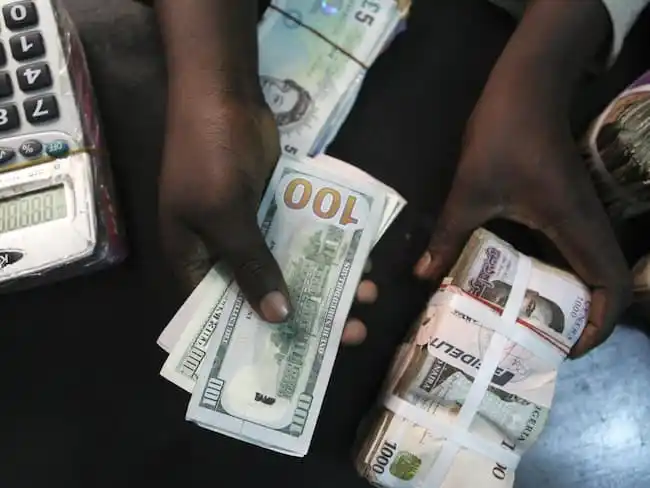Copyright Forbes

When life takes unexpected turns the fallout extends far beyond the surface and can leave lasting emotional and financial consequences. They don’t just disrupt daily life, they create long-term emotional scars and destabilize finances at their core. According to the American Institute of Stress, unresolved relationship and emotional stress contribute to an estimated $300 billion in annual costs from absenteeism, diminished performance, and turnover, underscoring that personal crises ripple into the economy at scale. When personal stability is challenged, it creates a ripple effect that usually reaches far beyond the immediate moment. Whether it's through relationship trauma, unexpected accidents, or financial crises, it can harm not just the emotional well-being but also financial security and future trajectories. Women in leadership roles and entrepreneurship frequently bear the brunt of these downturns. They absorb emotional strain while facing financial risk and ruined reputations. In those moments, what separates recovery from collapse is often having the right expert by your side. The Price of Survival Mode Not all crises are legal or financial. Many are emotional, rooted in patterns that even the most accomplished leaders find difficult to change. Sanya Bari, MEd, LPC, NCC, is a relationship trauma therapist and coach who specializes in guiding high-achieving women through the emotional and financial fallout of divorce, infidelity, narcissistic abuse, and unresolved trauma. Her work centers on helping leaders regain the clarity and composure required to make sound decisions under stress—especially when emotion threatens to drive costly choices. "What determines whether your actions heal or harm isn’t what you do — it’s where you are in yourself when you do it," says Bari. Bari’s clients are often executives and entrepreneurs who have built success through discipline and drive but find that the same habits fueling their performance over-responsibility, people-pleasing, or perfectionism undermine their stability when life unravels. Emotional exhaustion and guilt can quietly distort judgment, leading to unnecessary spending, unbalanced settlements, and leadership missteps. One client, Samantha Reed, sought Bari’s help after discovering her husband’s long-term affair. In the early months of her separation, she drained savings, covered joint debts, and paid legal fees to maintain stability for her children, a pattern Bari says is common among women who feel responsible for “breaking the family,” even when they were not the cause. MORE FOR YOU That misplaced sense of guilt often translates into financial overextension: keeping homes they can’t afford, overpaying in settlements, or absorbing expenses that should be shared. Bari’s work begins by helping clients separate emotional obligation from financial reality, a distinction that can determine whether they recover or remain trapped in instability. Through structured coaching with Sanya Bari, Samantha learned to separate emotion from obligation and make decisions grounded in financial reality. She renegotiated her settlement, assessed what assets were sustainable to keep, and reduced her monthly expenses by 40%. “I didn’t ruin my family,” Samantha said. “I rescued myself from the ruin.” “People assume love and leadership are separate, but they’re not,” Sanya Bari explains. “When you heal the patterns that keep you in survival mode, you recover the freedom to create the relationships and career you always wanted. That steadiness shows up in every decision you make.” Bari notes that while her clients’ struggles often begin in their personal lives, the ripple effects don’t stop there. When emotional strain meets financial exposure, even the most capable leaders can find themselves making decisions from fear instead of strategy, a pattern mirrored in other forms of crisis, from catastrophic injuries to unexpected tax battles. For women founders and executives, that distinction can be the difference between temporary survival and long-term stability. Emotional steadiness, Bari argues, is not a soft skill, it’s a safeguard for communication, negotiation, and financial control in moments when trust and focus are paramount. The High Cost of Being the Victim Charlotte Nel, a schoolteacher, was driving to work when a distracted driver caused a three-car collision. Initially told her injuries were minor, she soon lost grip strength in her hands, struggled to lift even small items, and ultimately required spinal surgery. The physical toll was only part of the setback. The insurance companies denied responsibility, combed through her medical history to allege preexisting conditions, and even sent investigators to photograph her family outside their home. What began as an accident evolved into a financial and emotional siege. “It felt like I was being attacked twice,” Charlotte says. “Once in the crash, and then again by the system that was supposed to help me.” Attorney John Coco, who specializes in catastrophic injury cases, reframed her claim into a structured litigation strategy. His firm assembled medical experts, accident forensic experts and visual exhibits to dismantle the insurer’s position. After three years, Coco secured the full $1.3 million in available insurance coverage—restoring Charlotte's financial footing and stability for her family. “Insurance companies will delay, deny, and minimize claims,” Coco explains. “Justice depends on leveling the playing field so injury victims have the resources to rebuild.” Coco has seen similar patterns across cases—construction workers who lose their career, professionals whose chronic injuries derailed promotions, and parents who spent years recovering from injuries. In every instance, the defense sought to minimize both damages and cost. Coco’s boutique approach is deliberately resource-intensive, leveraging data, expert testimony, and litigation technology to counter the scale of corporate defense. “For professional women, accidents often create a hidden economic crisis. Lost income, medical debt, and prolonged recovery while balancing familial responsibilities compound the risk of financial instability,” said Coco. In industries like education where according to Pew Research women represent nearly 77% of the workforce each sidelined career translates into lost productivity and institutional disruption. The Silent Weight of Tax Debts For women facing tax crises, the numbers are rarely the whole story. Consider Karen Ellis, divorced in 2018, who discovered the IRS had seized her refunds to cover taxes her ex-husband had failed to pay years earlier. Although the debt stemmed entirely from her ex’s unpaid obligations, the IRS still held her liable as a joint filer, freezing refunds and applying future credits toward the balance. She found herself entangled in a tax nightmare she didn’t create, facing mounting notices and financial uncertainty despite having done nothing wrong. “When you are dealing with the IRS, fear often drives decisions,” says Fabian Cruz, a tax-resolution specialist who focuses exclusively on high-stakes cases. “My job is to replace fear with clarity, and clarity with a strategy that lasts.” In Karen’s case, Cruz stepped in to separate her financial record from her ex’s, filing for Innocent Spouse relief to prove she had neither knowledge of nor responsibility for the original debt. He secured full forgiveness of the prior liability, restoring not only her refunds but also her financial independence. For Cruz, this outcome reflects the deeper purpose of his work: permanent solutions that free clients from the shadow of past mistakes and allow them to lead without fear. That strategy takes many forms beyond divorce-related debts. Cruz negotiates Offers in Compromise that settle balances for a fraction of what is owed and designs payment plans that reflect true earning capacity rather than unrealistic demands. His emphasis is on creating durable financial clarity, not temporary fixes. The implications stretch far beyond individual households. According to a KPMG study, nearly 70 percent of female executives say they feel pressure to be “perfect” in their roles. Add the weight of IRS levies or tax disputes, and that pressure escalates into risks for credibility, career stability, and organizational performance. For women entrepreneurs, a tax crisis can stall growth, restrict credit access, and shake investor confidence. Fabian Cruz’s work makes clear that tax resolution is more than financial repair. It is leadership preservation to ensure women have the clarity, confidence, and control they need to continue steering their businesses, teams, and futures forward. Resilience as a Business Imperative Resilience is not just personal, it is organizational. More than 40 percent of women in senior leadership identify burnout as a top risk, according to McKinsey’s Women in the Workplace Report. Add a legal, tax, or operational shock, and the risk can escalate from burnout to breakdown, with consequences that reach across teams and balance sheets. Numbers underscore the stakes. The U.S. Small Business Administration reports that women-owned firms contribute about $1.9 trillion to the economy and employ more than 10 million workers. When women leaders are sidelined by emotional or financial fallout, the cost hits not only their families but also employees, investors, and industries where progress has been hard-won. The lesson for women leaders is clear: in a landscape where women still face funding gaps and leadership bias, navigating crises with the right allies becomes leadership capital. They keep decisions anchored in clarity rather than crisis. When life unravels, the women who endure with the right guidance do not simply return to baseline. They can emerge stronger, more decisive, and more durable in their leadership. Strength multiplied across boardrooms and businesses is how the next chapter of women’s leadership is written.



